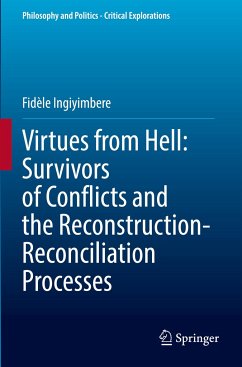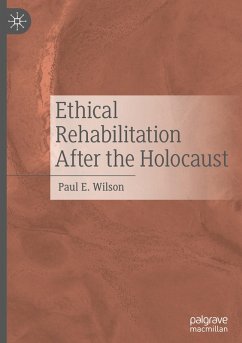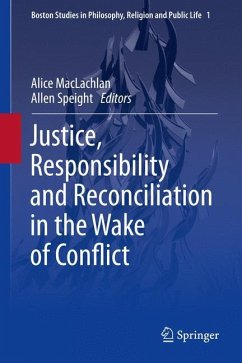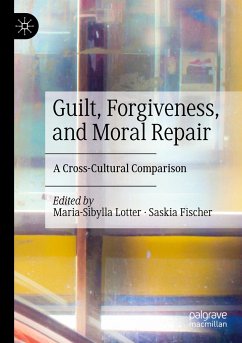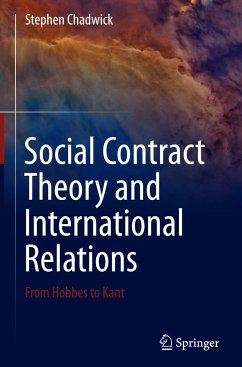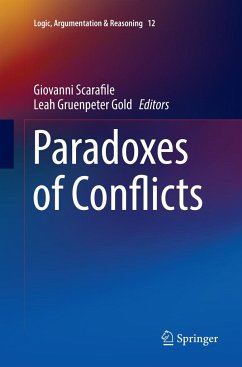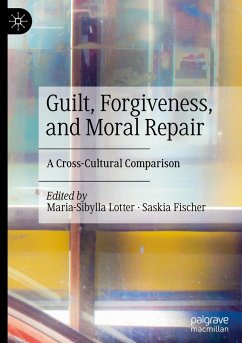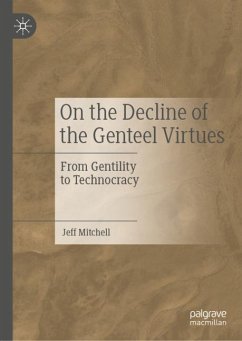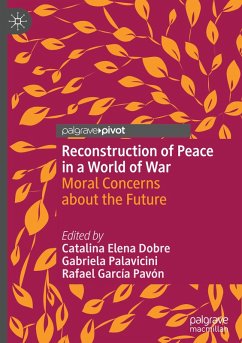
Virtues from Hell: Survivors of Conflicts and the Reconstruction-Reconciliation Processes
Versandkostenfrei!
Versandfertig in 6-10 Tagen
83,99 €
inkl. MwSt.
Weitere Ausgaben:

PAYBACK Punkte
42 °P sammeln!
This book offers a critical examination of certain ideas and values-such as remembering, forgiveness, story-telling through Truth and Reconciliation Commissions, etc.-that under-gird the transitional practices and mechanisms of societies emerging from conflicts. It does so by making the survivors' experience the supreme and ultimate judge of the legitimacy of such practices. While many scholars have dealt with these topics, this book provides a unique perspective on them by using personal stories, narratives and memoirs of the survivors as a checking point of the theoretical elaboration of the...
This book offers a critical examination of certain ideas and values-such as remembering, forgiveness, story-telling through Truth and Reconciliation Commissions, etc.-that under-gird the transitional practices and mechanisms of societies emerging from conflicts. It does so by making the survivors' experience the supreme and ultimate judge of the legitimacy of such practices. While many scholars have dealt with these topics, this book provides a unique perspective on them by using personal stories, narratives and memoirs of the survivors as a checking point of the theoretical elaboration of these ideas and values. By means of an existential phenomenological analysis of the situation of survivors of gross human rights violations, the book assesses how many resources are still available to them, so that they can contribute to the processes of reconstruction and reconciliation of their societies. This analysis constitutes the background for reading the rest of the book, which challenges some assumptions and presumptions of transitional practices such as healing through truth-telling, or providing justice through reparations. It does so by presenting nuanced suggestions on the ways survivors can participate in the reconstruction-reconciliation processes, without jeopardizing their own well-being.



